By Xu Xiujun
The Boao Forum for Asia (BFA)’s annual conference, held from March 28 to 31 in Boao, a coastal town in China’s island province of Hainan, has attracted global attention.
As world recovery remains sluggish, Asia, the world’s most dynamic and promising region, is seeing greater endogenous growth momentum and will inject a strong impetus into the recovery of the global economy.
The BFA Asian Economic Outlook and Integration Progress Annual Report 2023 points out that as a major engine of the world economy, Asia is expected to accelerate its pace in overall economic recovery in 2023. This report estimates that the weighted real GDP growth rate of Asia in 2023 would be 4.5 percent, an increase from 4.2 percent in 2022, making it a standout performer in view of the global economic slowdown.
China will unquestionably be the largest driver of Asia’s economic growth this year. After the country optimized its COVID-19 response measures, it has witnessed a rapid recovery of its economic and social vitality.
The Chinese government has launched a series of policies that accelerated the pace of economic pickup and boosted market confidence. Many international organizations have lifted their forecast on the growth of the Chinese economy, which they believe will also spur the growth of Asia as a result.
Given the uprising of unilateralism and protectionism, the global trade dependence on Asia has remained stable overall, with trade dependence between Asian economies standing at a relatively high level.
Trade and economic relations between Asian economies have become closer with the active participation and promotion of China.
According to statistics released by the General Administration of Customs of China, the country’s total trade in goods hit a record high of 42.07 trillion yuan ($6.11 trillion) in 2022, topping the world for six consecutive years.
The Association of Southeast Asian Nations (ASEAN) remained China’s largest trading partner, with bilateral trade in goods reaching 6.52 trillion yuan, up 15 percent from a year ago. South Korea, Japan, India and other Asian economies were important trading partners of China as well.
China is accelerating the establishment of a new development paradigm with domestic circulation as the mainstay and domestic and international circulations reinforcing each other. This provides new impetus and opportunities for strengthening China’s economic and trade cooperation with other Asian economies.
The country’s high-quality implementation of the Regional Comprehensive Economic Partnership also creates more dividends of institutional opening up for regional economic integration.
Last year, the 17th Group of 20 Summit and the 29th Asia-Pacific Economic Cooperation Economic Leaders’ Meeting were held in Indonesia and Thailand, respectively. This mirrored a more active leading role played by Asia in global economic governance.
In terms of trade and investment governance, Asian countries proactively safeguard multilateralism, advocate trade and investment liberalization and facilitation, support the multilateral trading system with the World Trade Organization at its core, and work for positive progress in the reform of the system.
In monetary and financial governance, Asian countries actively promote the construction of regional and global financial security networks, push for the settlement in local currency and currency swap within the region, and support the reform of international financial institutes.
With regard to improving global development governance, Asian countries have actively responded to the Global Development Initiative, promoted the high-quality development of the Belt and Road Initiative through joint efforts, and implemented the UN 2030 Agenda for Sustainable Development, to steer global development toward a new stage of balanced, coordinated and inclusive growth.
It is the solidarity and cooperation between Asian countries and their peoples that leads Asia to prosperity. The “Asian Miracle” calls for the endogenous impetus of Asia’s development. As the largest Asian economy, China will continue providing new opportunities for the continent’s progress with its own development.
(Xu Xiujun is a senior research fellow with the National Institute for Global Strategy and Institute of World Economics and Politics at the Chinese Academy of Social Sciences)
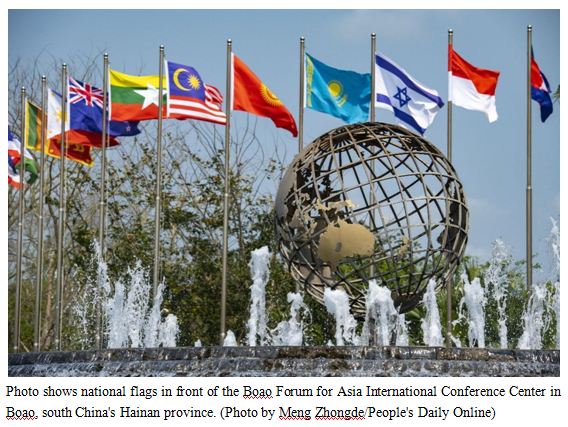
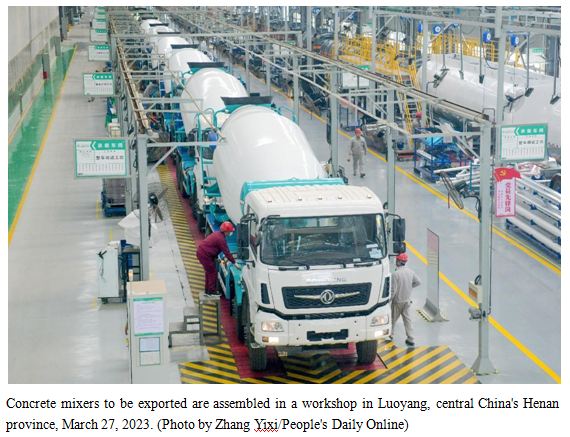
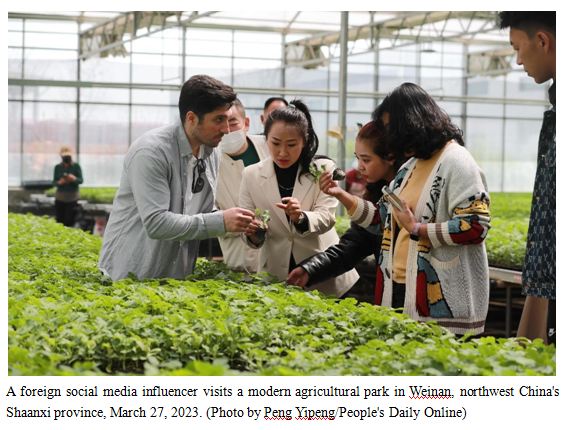
为世界经济复苏注入强劲“亚洲动能”
徐秀军
博鳌亚洲论坛2023年年会吸引全球目光。在世界经济复苏乏力的背景下,亚洲作为全球最具活力和增长潜力的地区,内生增长动力不断增强,持续为世界经济复苏注入强劲动能。博鳌亚洲论坛近日发布的《亚洲经济前景及一体化进程2023年度报告》指出,作为世界经济的重要引擎,2023年亚洲经济体整体复苏步伐加快,预计增长率为4.5%,不仅将远高于同期世界经济增长率,也较去年亚洲经济增长率高出0.3个百分点,将成为世界经济增速放缓背景下的一大亮点。中国无疑将是2023年亚洲经济增长最大的动力源。在因时因势优化调整疫情防控措施之后,中国经济社会活力快速恢复。中国政府推出的一系列政策的积极效应不断释放,经济复苏步伐明显加快,市场信心不断增强。众多国际机构纷纷上调对今年中国经济增速的预测,并因此上调了对亚洲经济增速的预测。
在单边主义、保护主义抬头的背景下,世界对亚洲的贸易依存度总体保持稳定,亚洲经济体之间的贸易依存度保持较高水平。在中国的积极参与和推动下,亚洲区域内经贸关系更加紧密。中国海关数据显示,2022年中国货物贸易进出口总值为42.07万亿元人民币,创历史新高,连续6年保持世界最大货物贸易国地位。东盟仍是中国最大贸易伙伴,双方货物贸易额达6.52万亿元人民币,较上年增长15%;韩国、日本、印度等亚洲经济体也都是中国的重要贸易伙伴。中国正加快构建以国内大循环为主体、国内国际双循环相互促进的新发展格局,这将为中国加强同亚洲国家的经贸合作提供新动力、新机遇。中国推动高质量实施《区域全面经济伙伴关系协定》,为地区经济一体化创造出更大的制度型开放红利。
2022年,二十国集团领导人峰会和亚太经合组织领导人非正式会议先后在印度尼西亚和泰国举行,亚洲在全球经济治理中发挥了更为积极主动的引领作用。在贸易投资治理方面,亚洲国家积极维护多边主义,促进贸易投资自由化便利化,积极支持以世界贸易组织为核心的多边贸易体制,并推动多边贸易体制改革取得积极进展。在货币金融治理方面,亚洲国家积极推动区域和全球金融安全网建设,推动区域内本币结算和本币互换,积极推动国际金融机构改革。在全球发展治理方面,亚洲国家积极响应全球发展倡议,推动共建“一带一路”高质量发展,落实联合国2030年可持续发展议程,不断推动全球发展迈向平衡协调包容新阶段。
亚洲的发展繁荣依靠的是亚洲各国和各国人民的团结合作,续写“亚洲奇迹”必须持续挖掘亚洲发展的内生动力。作为亚洲最大的经济体,中国将不断以自身新发展为亚洲提供新机遇。
(作者为中国国家全球战略智库综合研究部主任)
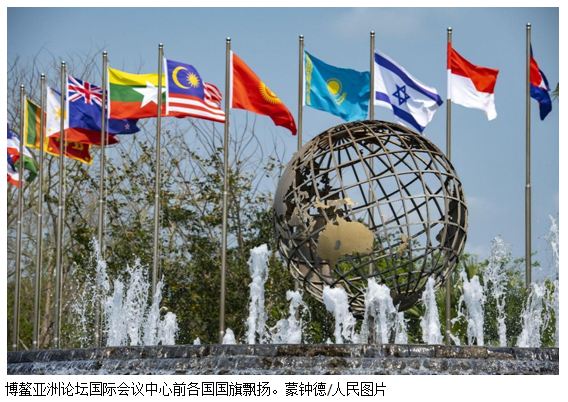
博鳌亚洲论坛国际会议中心前各国国旗飘扬。蒙钟德/人民图片
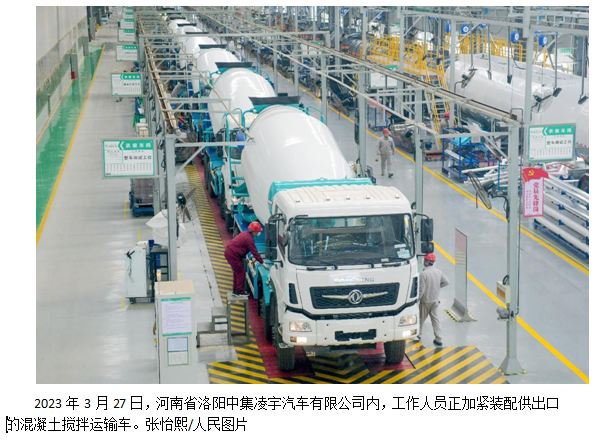
2023年3月27日,河南省洛阳中集凌宇汽车有限公司内,工作人员正加紧装配供出口的混凝土搅拌运输车。张怡熙/人民图片
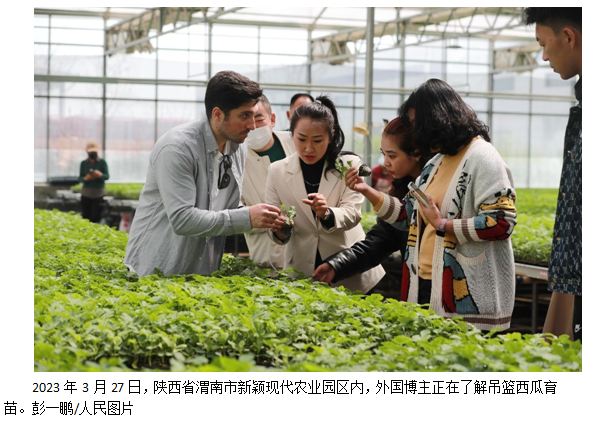
2023年3月27日,陕西省渭南市新颖现代农业园区内,外国博主正在了解吊篮西瓜育苗。彭一鹏/人民图片












